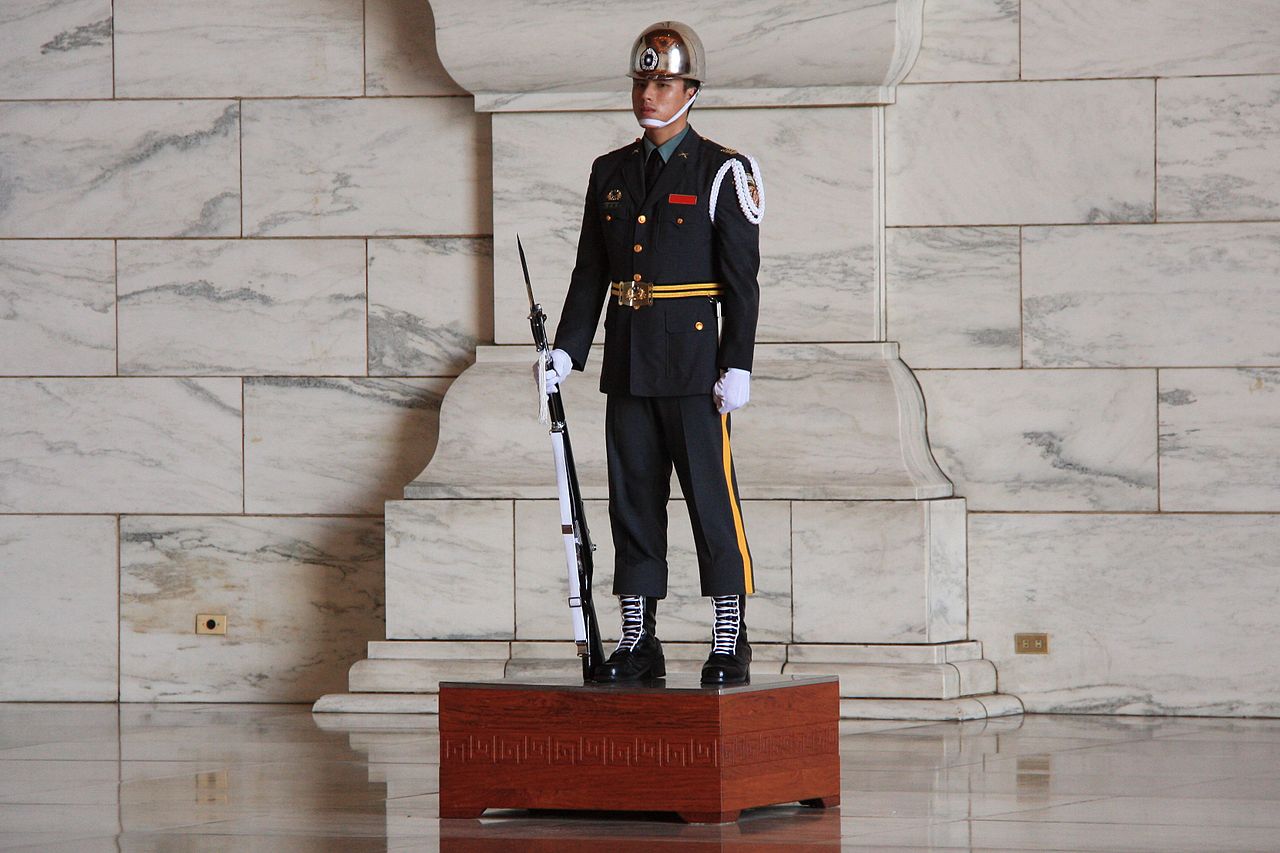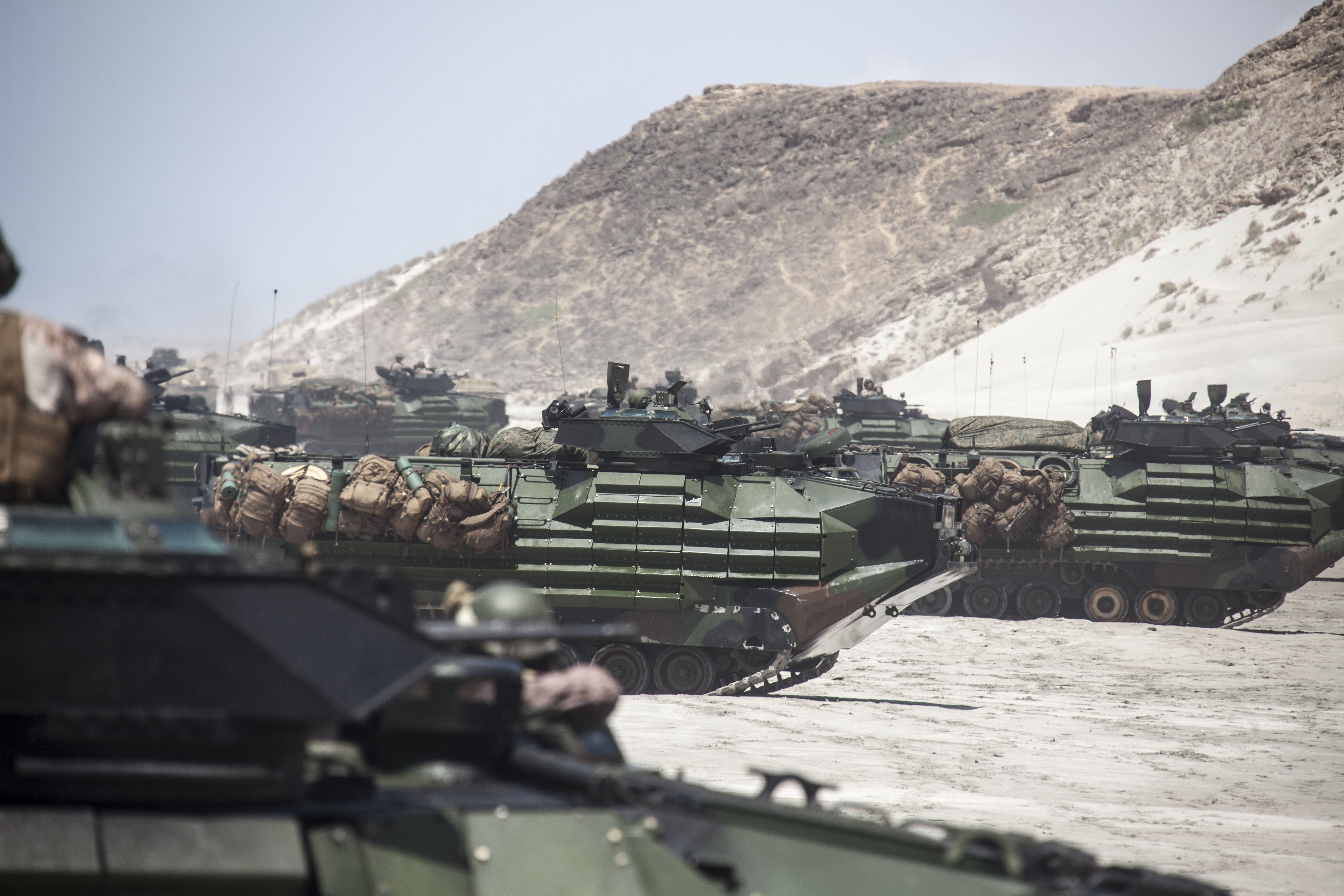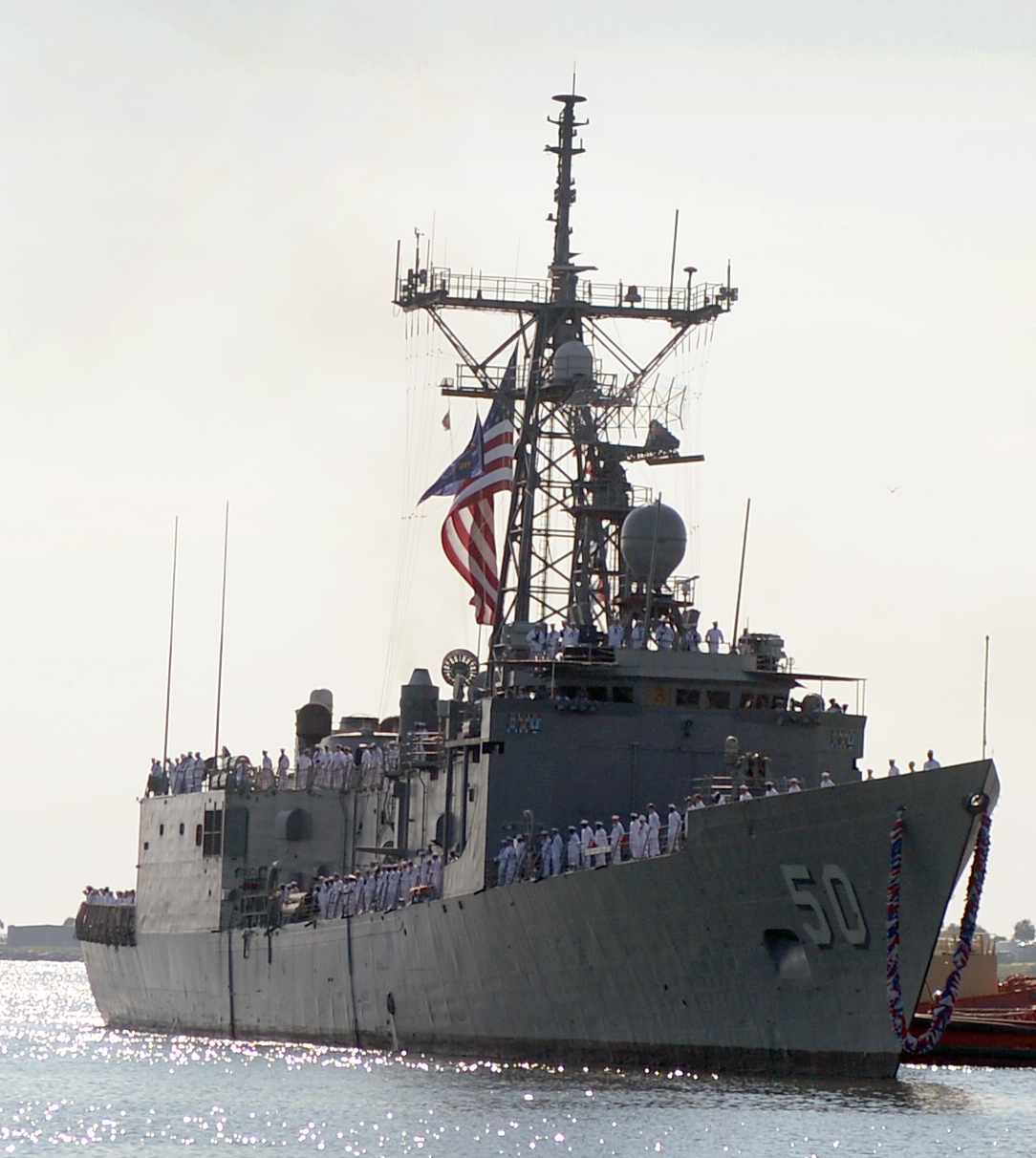
The following post has been updated to include a statement from Sen. John McCain and links to the individual Defense Security Cooperation Agency (DSCA) announcements.
The State Department will present Congress a comparatively modest $1.83 billion arms foreign military sales deal to Taiwan today – the first arms package for the island nation in four years, USNI News has learned.
According to sources familiar with the package, it will include the costs of refurbishing two former U.S. Navy Oliver Hazard Perry-class frigates, anti-air and armor missiles, defensive ship systems and 36 AAV-7 Amphibious Assault Vehicles (AAV).
While the first in four years, the $1.83 billion deal is modest in scope and firepower compared to the last package of $5.9 billion that included upgrades for Taiwan’s fleet of Lockheed Martin F-16 Falcon fighters and a 2010 package of $6 billion.
Notably absent from the deal is any mention of assisting Taiwan’s new diesel-electric submarine program (SSK) to replace its two Dutch-built, 1980s vintage 2,600-ton Hai-lang-class SSKs and two World War II era U.S. Guppy-class boats used for training or any movement toward fulfilling Taiwan’s lingering next-generation fighter requirement.

“The weapons that are included in here are almost exclusively for defense purposes,” Eric Wertheim, naval analyst and author of the U.S. Naval Institute’s Combat Fleets of the World told USNI News on Wednesday.
“It’s clear that the administration doesn’t want to upset mainland China by providing anything that can be seen as upsetting the balance of power in the region or appearing to be offensive.”
2015 Proposed U.S. Arms Sales Package to Taiwan Includes:
$416 million for 13 Phalanx ship defense systems
$375 million for 36 AAV-7 Amphibious Assault Vehicles
$268 million for 769 BGM-71 TOW 2B anti-armor missiles
$217 million for 250 shoulder-fired FIM-92 Stinger man portable air defense systems (MANPADS)
$190 million to refurbish two former Oliver Hazard Perry class
$120 million 10 Link 11/Link 16 data links for naval vessels
$120 million support for Multifunctional Information Distribution Systems Low Volume Terminals (MIDS/LVT-1) and Joint Tactical Information Distribution Systems (JTIDS)
$108 million for unspecified minesweepers in a direct commercial sale
$77 million for 201 FGM-148 Javelin shoulder-fired anti-armor missiles
The deal also includes a cost-free lease of a bilateral communications network between Taiwan and U.S. Pacific Command.
The lack of Washington arms deals with Taipei in recent years – one of the few countries willing to sell weapons against mainland China’s wishes – has been a subject of bilateral criticism for some in Congress.
Earlier this year the Taiwan Ministry of Defense announced it would embark on its own submarine program after the U.S. failed to make good on a submarine program agreed to under the George W. Bush administration.
Late last month, Sen. John McCain (R-Ariz.) and Ben Cardin (D-Md.) wrote to the White House to express concern the U.S. wasn’t doing more to aid Taiwan against the backdrop of a rapid Chinese military expansion.

“While recent relations between Taiwan and China have been more encouraging, we remain concerned that China’s ongoing military modernization, and the threat it poses to peace and security in the Taiwan Strait, is not being adequately addressed,” read the letter.
“We are increasingly concerned that, absent a change in defense spending. Taiwan’s military will continue to be under-resourced and unable to make the investments necessary to maintain a credible deterrent across the strait, especially as its limited defense resources are increasingly constrained by growing military personnel costs.”
Following the official release of parts for the deal, McCain’s office issued a statement on the deal and called for a more regular arms sales process to Taiwan and Taipei to commit to devoting three percent of their gross domestic product to defense spending.
“I strongly support the Administration’s notification of a new round of arms sales to Taiwan. This decision is consistent with both the legal requirements of the Taiwan Relations Act and our national interest in helping the democratic government in Taipei preserve stability across the Taiwan Strait, read the statement.
“Going forward, the United States must establish a more regularized process for considering requests for arms sales to Taiwan in order to avoid extended periods in which a fear of upsetting the U.S.-China relationship may harm Taiwan’s defense capabilities. For its part, Taiwan will also need to work to meet its commitment to spend at least 3 percent of its annual gross domestic product on defense.”
For its part, the reception from Beijing will almost certainly be poor. China views Taiwan as a breakaway territory and has spent decades exerting economic and political pressure to prevent other countries from selling arms to Taiwan.
Their view could be summed up from a statement late last year on the proposed deal between U.S. and Italian defense firms to create a domestic minesweepers for Taiwan.
“China firmly opposes foreign arms sale to Taiwan and any form of military technology exchanges and cooperation between Taiwan and foreign countries. This position is clear-cut and consistent,” the statement read.
“We ask relevant countries to respect China’s core interests, adhere to the one-China principle, neither sell arms to Taiwan in any form nor assist Taiwan in developing its military equipment, and take concrete actions to support the peaceful development of cross-strait relations and peaceful reunification of China.”





